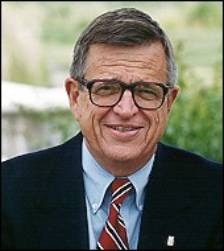“Can a country known for radical brutality become a country known for an even more radical forgiveness?” That’s the question Catherine Claire Larson asks in her new book, As We Forgive.
Larson, whose book was inspired by the award-winning documentary film of the same name, paints a gripping picture of the Tutsi survivors of genocide, who in 1994 endured 100 days of unimaginable violence at the hands of their Hutu neighbors. In just three months, nearly a million people were shot, macheted, raped, and tortured. The survivors lost everything—homes, families, hope.
But that was only their first trial. Seven years after the storm, the Rwandan government started releasing from prison more than 70,000 perpetrators of genocide.
Larson vividly describes the dreadful decision the survivors had to make. The people who had destroyed their lives were returning. Would they choose fear and hate? Or forgiveness and reconciliation?
As Larson writes so beautifully, many are choosing forgiveness. Take the story of Rosaria. Her sister and her two children were pummeled to death by a group of Hutu men from their village. Among them was a man named Saveri.
While in prison Saveri heard the Gospel. He repented of his cruelty, and through a reconciliation program begun by Prison Fellowship Rwanda, asked Rosaria for forgiveness. After a series of painful meetings, she forgave him—freeing him from despair, and herself from the coils of hatred.
Later, Saveri, along with other repentant killers, built homes for Rosaria and other survivors. “Hands that had once swung machetes in violence,” Larson writes, “now smooth clay bricks in peace.”
Or take the stories of Devota and Monique, both of whom lost all of their children in the genocide. With the help of Christian volunteers, they came to understand that Christ not only bears their sin, but their pain. And once they gave their pain to Christ, they actually sought out their perpetrators—and forgave them.
One of the most poignant stories Larson tells is of the children of the Nyange School. These children, Hutus and Tutsis, had become close friends in the wake of the genocide. When Hutu militia invaded their classroom, their love for Christ and each other was put to the ultimate test. The Hutu militiamen ordered all the Tutsis to one side, all the Hutus to the other. The students refused to move. Many of them were shot because of their love and faithfulness to one another.
If that love, that forgiveness, can be so strong in such darkness, then it is possible for all of us. Possible for the husband who continues to put his heart on the line when his wife has grown cold to him. Possible for the church deacon who won’t ignore the growing rift in the congregation, but who seeks to be a mediator. Possible for the daughter who refuses to let her mother’s stinging criticisms keep her from loving her.
Ultimately, what Larson shows us in As We Forgive is that of all human actions, forgiveness is perhaps the most powerful mirror of Christ’s love.
And that love is reflected so well in this marvelous book.
_______________________________________________________
From BreakPoint®, March 11, 2009, Copyright 2009, Prison Fellowship Ministries. Reprinted with the permission of Prison Fellowship Ministries. All rights reserved. May not be reproduced or distributed without the express written permission of Prison Fellowship Ministries. “BreakPoint®” and “Prison Fellowship Ministries®” are registered trademarks of Prison Fellowship

















